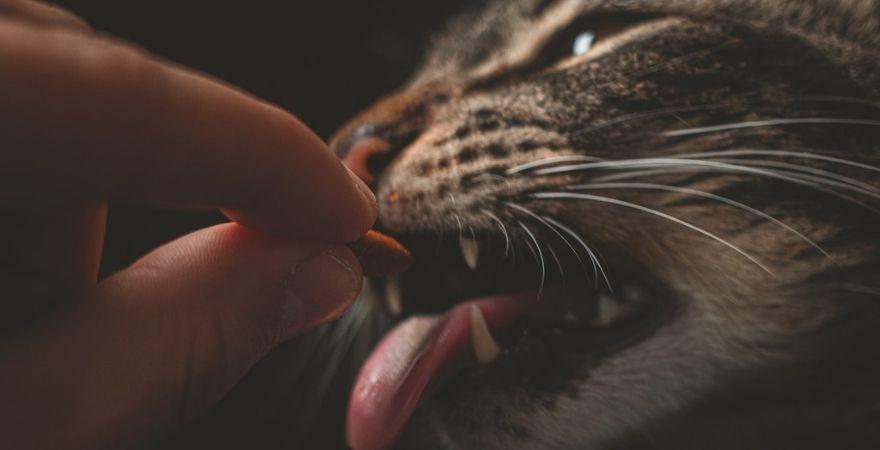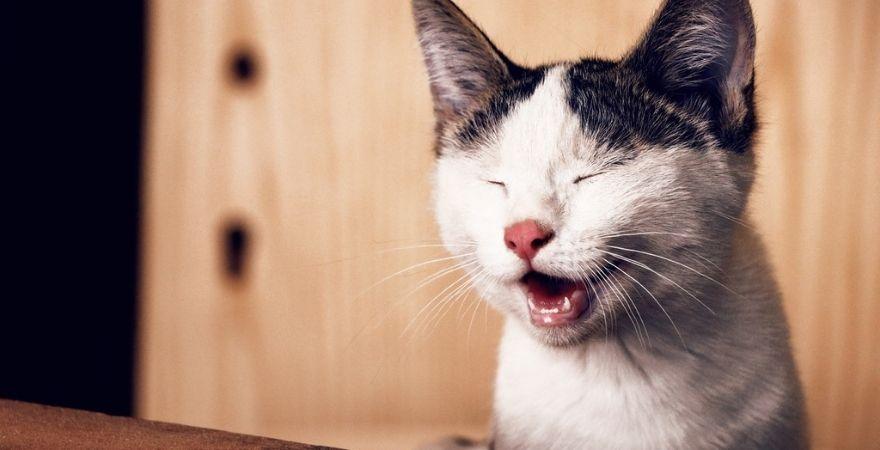One of the many reasons to love cats so much, is their independent spirit. But this doesn't mean your fur-friend wants a hands-off approach when it comes to health care. From kittens needing vaccinations and desexing, through to adult health checks and parasite control, and then bespoke senior care, regular vet visits make a real difference to a cat's well-being. Here's what our fur-friends want their owner to know about when to take cat to the vet.
Why are vet visits good for your cat?
It is the secretive nature of cats to hide when they are ill. Whilst some conditions are obvious (such as diarrhoea in the litter box!) others are not (such as heart disease.) For the latter, by the time Kitty shows signs of distress, she's already in heart failure. So stopping by the clinic allows the vet to check the pet over and spot tell-tale signs that might otherwise be missed.
For example, regular vet visits mean their weight is recorded on their file. At home, seeing your cat every day means you don't always spot when they are losing or gaining weight. These are not-to-be-missed clues and when the vet picks up on weight loss or weight gain it can signal a problem.
But vet visits are just about the poorly pet, they also help keep cats well. So how often should cats go to the vet?

When Does your cat need to see a vet?
How often do you take a cat to the vet depends on the cat's age.
Cat Calendar of Vet Visits
| Kittens | Young Adult |
Adult (1 - 7 Years of Age) |
Mature Adults (8 - 12 years) |
Senior Adults - Teens onwards |
| Kitten vaccinations: Every 3 - 4 weeks until four months of age | A visit at 15 months for their first booster injection and a health check | A yearly visit for booster injections and a health check | Twice yearly vet visits | Every 3 - 4 months |
Why is this? Why does visiting a vet so important to your cat's continued good health?
The Kitten's First Year

Young kittens have several vet visits straight out, for vaccinations and desexing. At this young age cats are usually healthy, so the visits are for preventative care (such as deworming, parasite control.)
This includes weighing the kitten frequently and making sure they are growing nicely (not too thin and not too fat!) Getting an accurate weight also allows the vet to ensure Kitty gets the right size deworming tablet and parasite control.
Adults 1 - 7 Year's Old
One should take the healthy adult cats to the vet at least once a year. This allows the veterinarian to:
- Give any necessary vaccinations
- Check the cat's weight and record it
- Check the pet for fleas and other parasites
- Check the pet's heart is strong and healthy
- Review their dental health
It also allows the vet to become familiar with that individual cat and how they react at the clinic. This is helpful so the veterinarian knows what's normal and what's not. For example, a change in behavior from being docile to hissing, can be a clue they aren't feeling well.
Mature Cats 8 Years - Teens
These cats should visit the vet once or twice a year. This is the age health problems such as diabetes, renal disease, or hyperthyroidism start to creep in. The signs can be subtle and not always spotted at home until the condition is advanced.
Having the vet examine the cat can highlight changes in their weight, coat condition, or mobility that flags up a problem early. And here's the rub: In cats, a problem treated early can dodge a more serious issue and extend the patient's life expectancy.
Senior Cats - Teens onward
Ideally the senior cat stops by the veterinary clinic every three months. Conditions such as high blood pressure are 'silent' until something catastrophic happens such as sudden blindness or a stroke. However, the vet checking the cat's retina (back of the eye) or measuring their blood pressure can pick up this problem early and treat it.
Also, frequent three-monthly screening of a urine sample is important for good health. Older cats tend to have weak urine, which loses some of its disinfectant properties. Identifying a low grade urinary infection before it shows symptoms, is important to prevent the infection tracking up to the kidneys, and cause damage which could shorten the cat's life.

How Often should a Cat Go to the Veterinarian?
Long story short, the baseline of a vet visit for any cat is their annual check up and booster injection. As the cat ages, these visits should become more frequent. This is because cats are masters at hiding health issues, and it can be difficult to spot subtle changes when you live with the cat all the time.
Also, generally recommended checks for adult cats mean the best of care with regards to keeping Kitty parasite free and her teeth in good shape. And then as she enters her senior years, a quarterly visit is a good idea, to spot early warning signs of high blood pressure, urinary infections, and age-related health issues.
The good news is, this vigilance pays off by extending the life expectancy of your cat. And what cat guardian doesn't want this for their feline-friend?
Dr. Pippa Elliott, BVMS, MRCVS
Veterinary surgeon, LinkedinDr. Elliott graduated from the University of Glasgow, UK, with a Bachelor of Veterinary Medicine and Surgery. She has over three decades of experience working in companion animal practice and is the designated veterinarian for the Cats Protection rescue center, Harrow.
In addition to hands-on work in the clinic, Dr. Elliott is a veterinary copywriter, which includes a role as a developmental editor for small animal, veterinary textbooks from Improve International (a major provider of veterinary continuing professional development). She also writes a regular newsletter piece for the Webinar Vet and contributed to The Veterinary Times.
Dr. Elliott is also qualified as an Official Veterinarian to oversee the export of animal products abroad, and her personal motto for life is “If you want something done, ask a busy person.”




1 comment
I think a holistic vet is best to take your pets to if one is available.